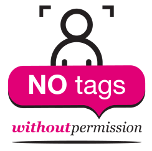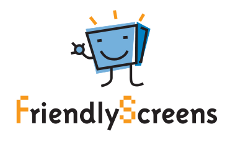Your photo associated to your name and profile in someone else’s photo album and available to all his friends… and you cannot decide beforehand whether they can tag you or not. This is something that could happen and it does happen everyday in social networks such as Facebook, as it does not request permission to […]
Have you ever thought about it? Even if your configuration on a social network seems that is set to protect your privacy, this feeling could be really misleading. This new video from the #NOTAGSwithoutpermission campaign shows with a clear and simple example what could happen. Any of your friends on the social network can […]
Facial recognition is becoming a controversial feature in the United States, as it’s being applied not only in commercial and advertising environments, but also in security services. FBI is very interested in this kind of technology and aims “to collect as much biometric data as possible [. . .] and to make this information accessible to all […]
Mark Zuckerberg’s company is under investigation in Norway. Authorities in this country (the Norwegian Data Protection Authority) are analyzing Facebook’s facial recognition software as they see it as a threat to their citizen’s security. According to this organization, users could be tracked by this social network, which is a serious violation of privacy under Norwegian law. Bjørn […]
A recent study of Brazialian social network users inquired about security and privacy reaching the following results: 45% of users have their Facebook profile set as private (only seen by friends), a lower figure comparing to that of USA (59%) 63% of them share photos on social networks 29% share videos 35%, personal data 14%, their geolocalization […]

In its eight years of existence, Facebook has included and removed many features with the alleged goal of facilitating communication and interaction among its users. Some of these tools, such as photo tagging, have caused (and still do) problems that so far have not been addressed properly. Facebook only intervenes when the content posted by […]
During his speech at the First International Digital World Encounter (ESSE), Jorge Flores, director of FriendlyScreens, launched officially the NoTagsWithoutPermission campaign in three languages (Spanish, English and Portuguese). This campaign looks for public support to convince those who have a saying on social networks to change the way users can be tagged by others. The goal is that social networks modify how tags are […]
Facebook has just filed a fourth amendment to its S-1 to IPO that notes that it now has 500 million mobile users, 901 million monthly active users, and that it paid 23 million shares at $30.89 a share plus $300 million cash for Instagram for a total of $1,010,470,000. Facebook also made $1.058 billion in revenue in […]
As part of the #NOTAGSwithoutpermission campaign started by FriendlyScreens, we released a video showing a common case that can occur in Social Networks when users don’t have the ability to approve or reject a photo tagged with their own name before it’s published and disseminated by the Social Network. This video helps on our demand to make […]
This animation is created to raise awareness about the risks of loss of privacy due to the carelessness of friends on the Internet, i.e loss of privacy as a consequence of what others do with your image or personal information. This is a problem that is growing in social networks on the Internet. “What do other people know about you does not only depend on you.”
It is becoming increasingly common and simple to upload images on the Internet. In the context of social networks there is also the possibility of tagging, i.e linking people to those images. Have we stopped to consider what implications this feature can have? Read the whole article in Spanish or translated thanks to Google Translate
Max Schrems, a law student at the University of Vienna, has become by its own merits the protagonist of a battle that has confronted Facebook with European laws on data protection, which are stricter than their U.S. counterparts. To avoid paying taxes on profits earned outside the United States, the social networking giant established its […]

